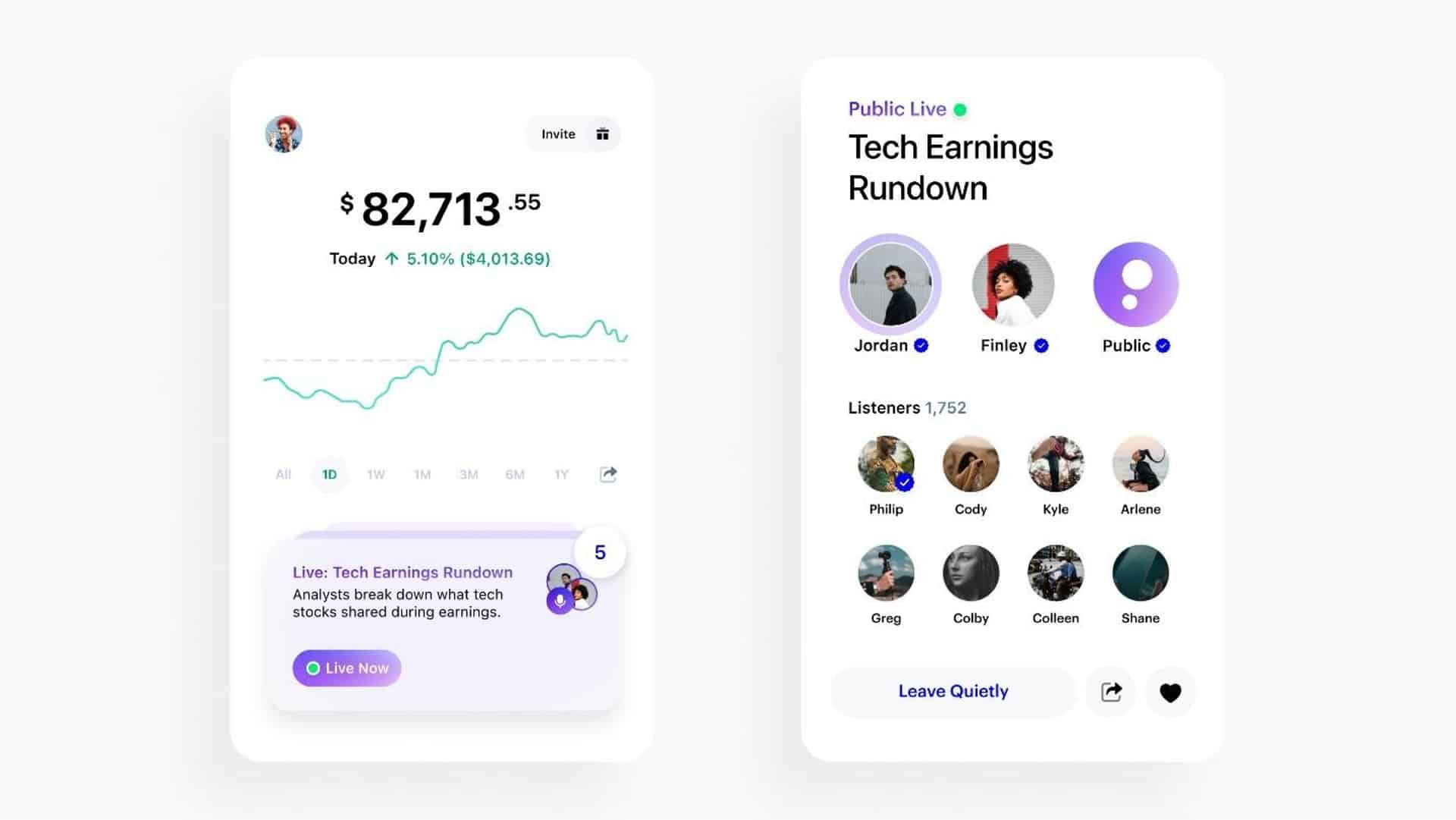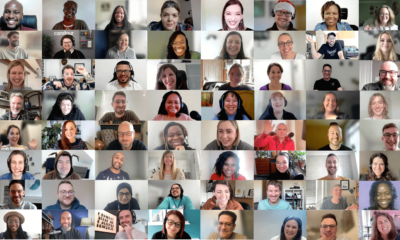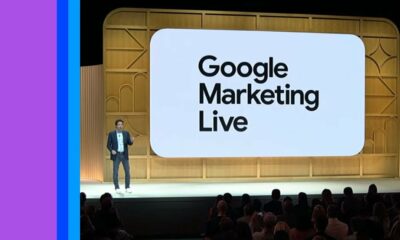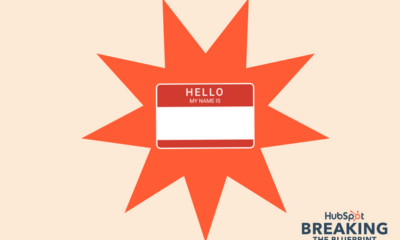
Example of a Public Live event. Image provided by Public
Public.com is an early-stage company that wants to help people become better investors. They do this by delivering personalized content and education to their community of over a million members who use the platform to connect with friends, follow companies, and build confidence in investing.
As their investment in content and features designed to educate and inform their members grew, they realized they had a bigger need to make their app content more discoverable. “It was a need that grew as we realized that delivering our content to relevant members was going to create the most value for both us and our user base,” said Katie Perry, Public’s VP of Marketing.
Building different experiences
Founded in 2017, Public’s goal is to help their members build a diverse portfolio of stocks by providing content and education that makes them better investors over time.
In May 2021, they launched Public Live, a feature that integrates live audio into the Public app experience. Users receive push notifications to join Public Live events which cover relevant topics based on user behavior and other data.
Perry explained that Public uses real-time customer interactions and other information to alert users about Public Live events that may be of interest to them.
“Alphabet, Google’s parent company announced they’re doing a stock split this week, so we might use Public Live to do a 30-minute breakdown of what’s happening with Alphabet. What’s the stock split? What are the implications? Since we’re investing in that content and that experience, we want to make sure that it surfaces to our app users who own Google stock. As we added content and features to the app, being able to reach people in more sophisticated ways was a need that grew.”
A personalized customer engagement approach
Public’s Lifecycle Marketing team drove the search for a technology that could surface relevant content to their app users in real time. They partnered with customer engagement platform Braze that offers a strongly multi-channel approach to personalization that includes mobile, web, email, and SMS.
Braze aims to enable businesses to ingest and process customer data in real time, then orchestrate and optimize contextually relevant, cross-channel marketing campaigns. Although Perry was not part of the group that selected and implemented Braze, she worked with her editorial team to fully onboard the tool with her content approach.
“For me, it was helpful to understand what Braze’s capabilities were so that I could help advise on how to make sure we are reaching the most relevant people,” Perry explained. “That meant asking those questions; how does that work? how do we surface messages? how do we find those groups? These were conversations that our editorial and lifecycle teams worked on together.”
Public is a free app with a growing community of investors that leverages social and engagement features. This differentiates it from other investment information sources. A portion of Public’s community actively invests, but many people are there just to learn.
“It’s really not about giving exclusive content to people who pay,” said Perry. “It’s about matching the topics that we’re covering from an editorial angle to the right people.”
Public looks at what’s going on in the stock market and parses relevant business news to identify meaningful educational moments for its users. Perry’s team creates relevant content and live events that resonate with users based on their profiles and interests. “Through the experience of talking through a real-life event, people can learn,” said Perry.
Perry’s team is focused on defining relevant topics and moments like town halls and Public Live events. They create the content independently and then work with the Lifecycle Team to figure out which members will find the content valuable.
“Obviously, people who own certain stocks will be interested in certain events. Let’s say you invest in one electric vehicle Company like Tesla, you might be interested in Rivian which has an IPO that’s either rumored or happening. That might be an interesting session for you to attend because you’ve demonstrated interest in the electric vehicle category,” said Perry.

Public Town Hall with ARK CEO Cathie Wood. Image provided by Public
Unlike other investment information companies, Public does not make money on trading volume. The company is VC-backed and makes money in a variety of ways, including via optional tipping. Public’s users have the option to add a tip to their trade to help support Public’s free services.
Public also makes money in other ways including interest on cash balances and markups on cryptocurrency transactions. They are completely transparent about their business model which is posted on their website.
Read next: More case studies from Jacqueline Dooley
Creating a growing audience of engaged users
Public is a fast-growing company in a very competitive space. After implementing Braze’s solution, Public saw the engagement double in their Public Live audio shows. They also saw a 40% increase in participation in their town hall events.
Said Perry, “It’s about connecting people with the content that is out there already that they might not even know about and the content that we’re producing ourselves. One thing we do a lot — and Braze is part of that — is using the technology to get key learnings. We use metrics to understand what topics are really popular and that helps inform our content strategy.”
Perry advises companies who are interested in using customer engagement technology to start early in the process of content creation so that the tool helps inform the content strategy.
“We start early on,” explained Perry. “For example, we didn’t know how our shows on very complex crypto topics and blockchain were going to perform, but they’re some of our most popular shows. We’ve since added a recurring show on crypto topics. Using this technology to reach the right people and then looking at the data and capturing actionable insights can inform your content strategy. It’s a virtuous cycle.”
Get the daily newsletter digital marketers rely on.





















You must be logged in to post a comment Login